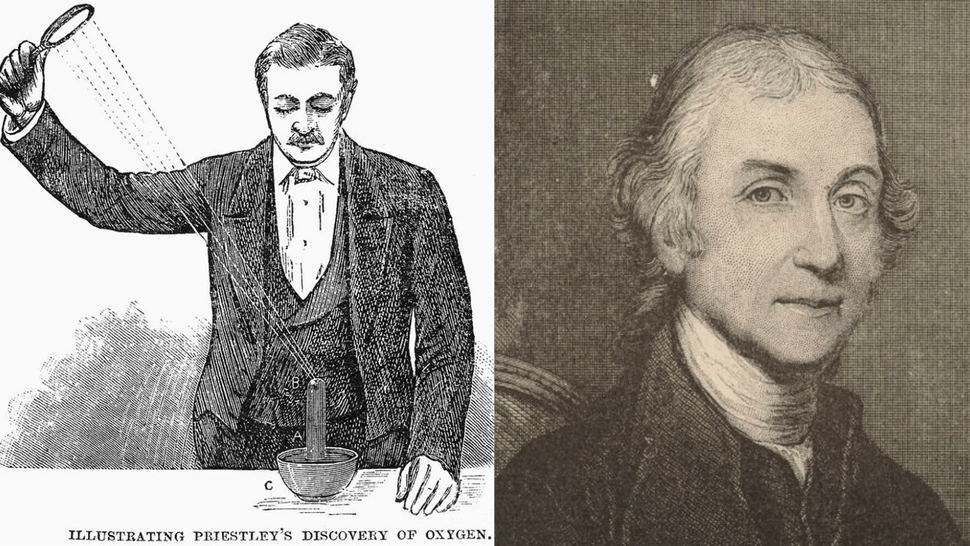On August 1, 1774, English chemist and natural philosopher Joseph Priestley made arguably his greatest discovery.
The chemist born in Yorkshire, England, on March 24, 1733, discovered oxygen, which he described as “dephlogisticated air.”
Priestley made the discovery at Boxwood House in England using a 12-inch-wide glass “burning lens” through which he channeled magnified light at a lump of mercuric oxide placed in a glass tube sat in a pool of mercury.
The aim of Priestley’s work reflected one of the main scientific pursuits in the 18th century, discovering what happens when material burns. The prevailing thought at the time was that flammable materials released a substance called “phlogiston,” as they burned.
Earth’s atmosphere: Facts about our planet’s protective blanket

Priestley described the gas released by his experiment as being “five or six times as good as common air.” This referred to its ability to make a flame burn intensely and the fact it was able to sustain a mouse alive for about four times as long as a similar quantity of air could do.
Later in the 18th Century, not only did chemist Antoine Lavoisier prove that phlogiston did not exist, but he gave Priestley’s “dephlogisticated air” a new name; oxygen. After his discovery, on April 8, 1794, Priestley moved to America, where he became good friends with Thomas Jefferson. The chemist passed away on February 3, 1804.
Jefferson later described Priestley as “one of the few lives precious to mankind.”
It is somewhat staggering that on this day, just 250 years ago, chemists had no idea what the vital element in the air was that sustained our lives. We now carry oxygen to space to allow our astronauts to survive in space and hunt for oxygen on alien worlds.
On This Day in Space Archive!
Still not enough space? Don’t forget to check out our Space Image of the Day, and on the weekends our Best Space Photos and Top Space News Stories of the week.